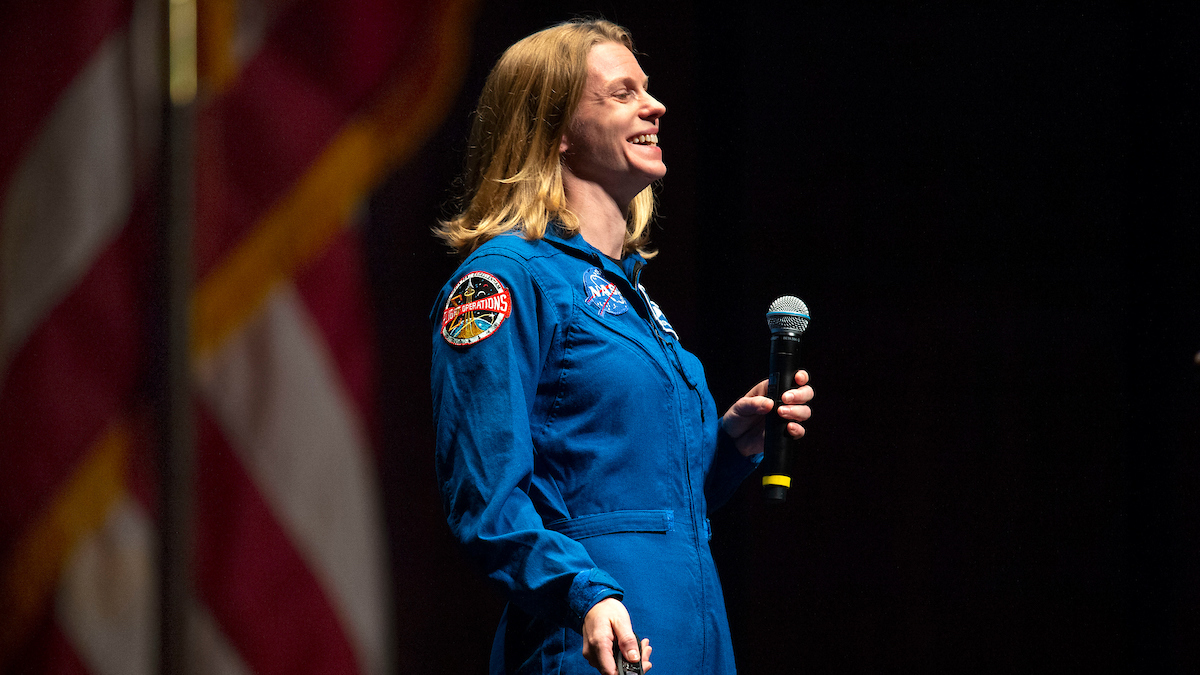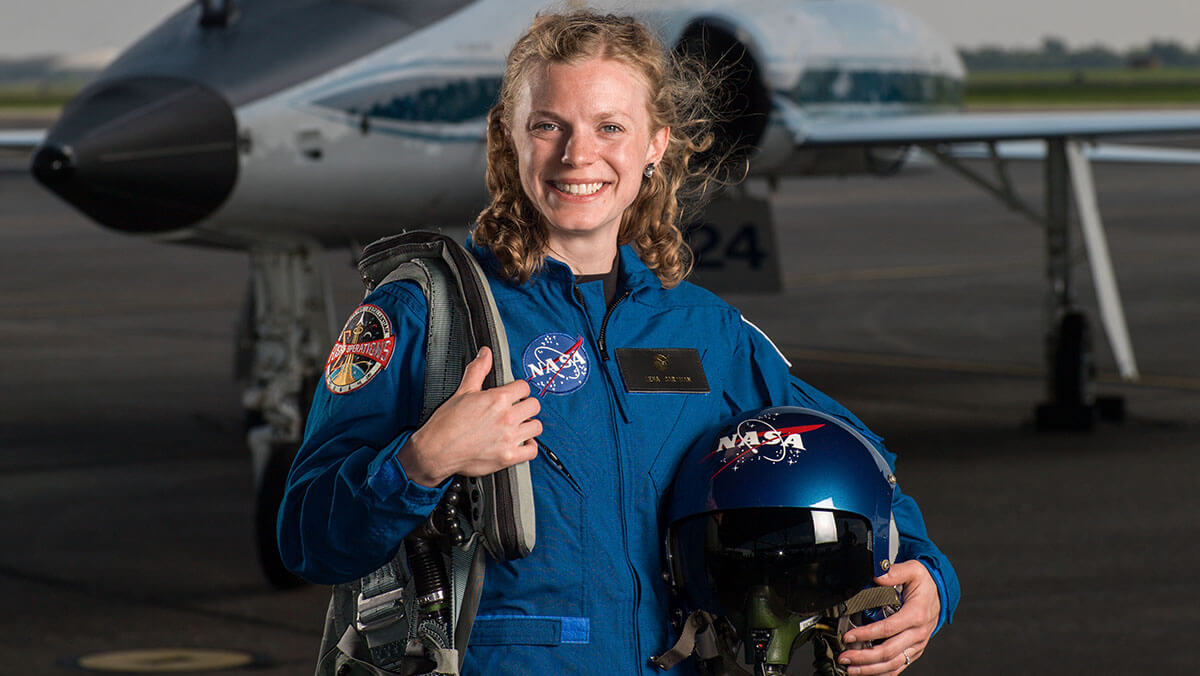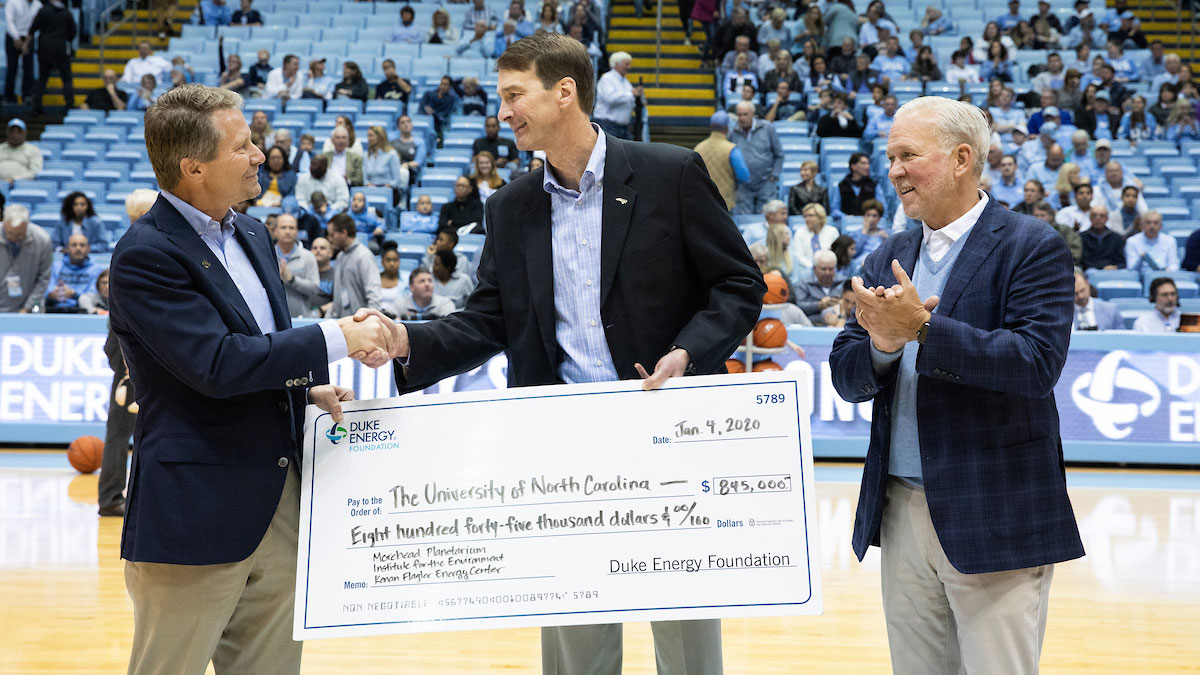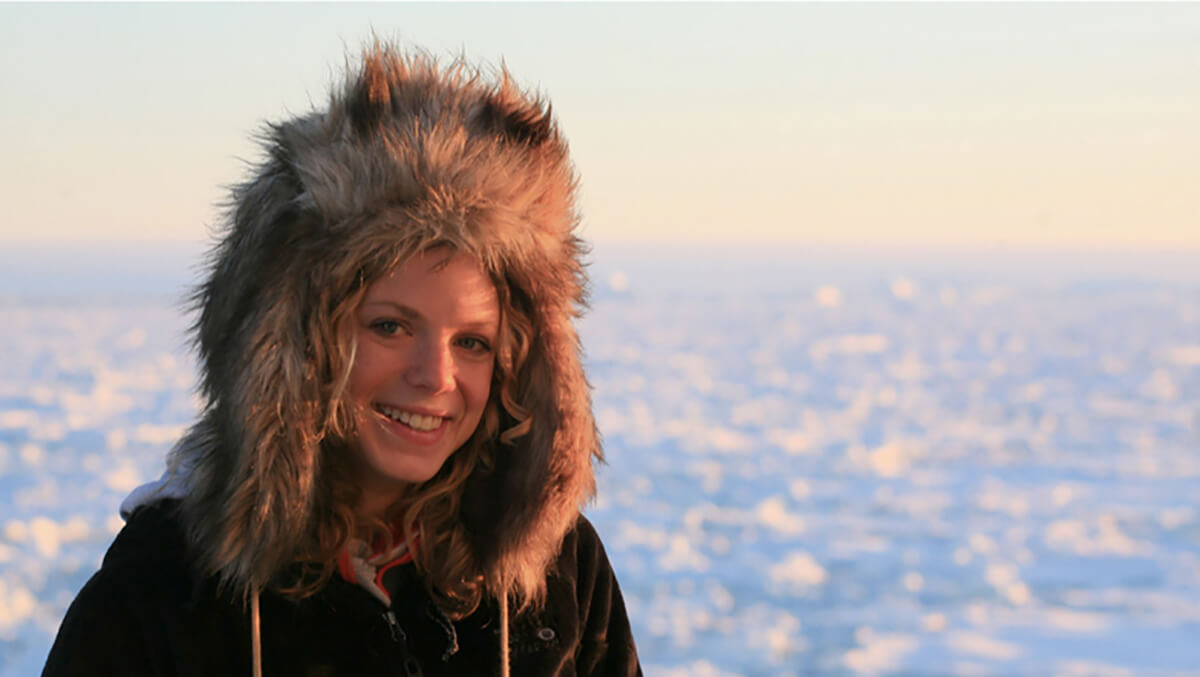Two-time Carolina alumna graduates from NASA astronaut basic training
Zena Cardman is a member of the first class of astronauts to graduate under the Artemis program, which aims to land the first woman and next man on the moon by 2024.
Zena Cardman ‘10, ’14 (M.S.) is one step closer to outer space.
Cardman was among the 11 NASA astronaut candidates who concluded more than two years of training at a graduation ceremony at Johnson Space Center on Jan. 10. It was the first class of astronauts to graduate under the Artemis program, which aims to land the first woman and next man on the moon by 2024.
At the ceremony, Cardman received a silver astronaut pin, marking her graduation from basic training, which included training in spacewalking, robotics, International Space Station systems, T-38 jet proficiency and Russian language.
She is now eligible for spaceflight, including assignments to the International Space Station, Artemis missions to the moon and, potentially, missions to Mars.
“Zena’s technical ability and operational insight will ensure that she’s a success no matter what mission she is on, but the thing that excites me most about Z flying in space is what she’s going to share with us when she looks back at our own planet,” said Jennifer Sidney-Gibbons, a Canadian Space Agency astronaut who graduated alongside Cardman. “Z has this really unique ability to talk about our Earth in a way that is inspiring and poetic. I think that when she is in whatever orbit we put her in and she comments on our Earth from her celestial vantage point, she will share some of the most beautiful things that any of us have ever heard.”
A native of Williamsburg, Virginia, Cardman graduated from Carolina in 2010 with a bachelor’s degree in biology, honors in poetry and minors in marine science, creative writing and chemistry. She earned a master’s degree in marine science from UNC-Chapel Hill in 2014 before enrolling in a doctoral program at Pennsylvania State University.
When Cardman returned to Chapel Hill in November for University Research Week, she credited her time at Carolina for setting her on the path that led her to NASA.
“It was during college that I found people who I wanted to model my life and my career after, people who were students just a few years older than I was,” she said. “Realizing that there were people who were like me who did that career path that I wanted to pursue made me think that it could work.”



